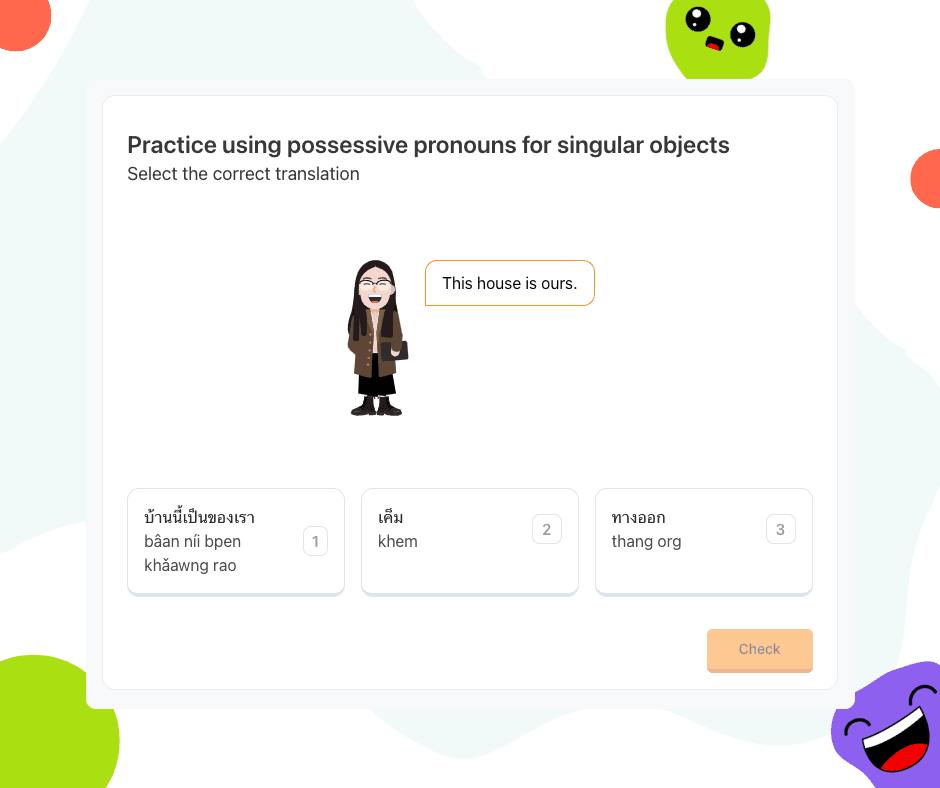Practice using possessive pronouns for singular objects
Published

Possessive pronouns play a crucial role in language as they indicate ownership or association with a particular object. Understanding how to use possessive pronouns correctly for singular objects is essential for clear communication. Let's explore how to practice using possessive pronouns for singular objects and why it's important in language learning.
Understanding Possessive Pronouns: Possessive pronouns replace nouns to indicate ownership or association. In English, common possessive pronouns for singular objects include "my," "your," "his," "her," and "its."
Practice Makes Perfect
To master possessive pronouns for singular objects, practice is key. Start by identifying singular objects in sentences and replacing them with the appropriate possessive pronoun. For example, "This is my book" becomes "This is mine."
Clarity in Communication: Using possessive pronouns correctly ensures clarity in communication. It helps convey ownership or association with a singular object without the need for repetition or ambiguity. Clear communication is essential in both spoken and written language.
Cultural Considerations: Understanding possessive pronouns is not only important for language learning but also for cultural understanding. Different languages may have unique rules and nuances regarding possession. Therefore, mastering possessive pronouns allows for better comprehension and appreciation of cultural diversity.
Isanlingo Practice Exercises: Enhance your skills in using possessive pronouns for singular objects with IsanLingo's practice exercises. Our interactive lessons offer targeted exercises and real-world examples to reinforce your understanding and improve your language proficiency.
Practice using possessive pronouns for singular objects with Isanlingo today and take your language skills to the next level. Clear communication and cultural understanding await as you master this essential aspect of language learning.